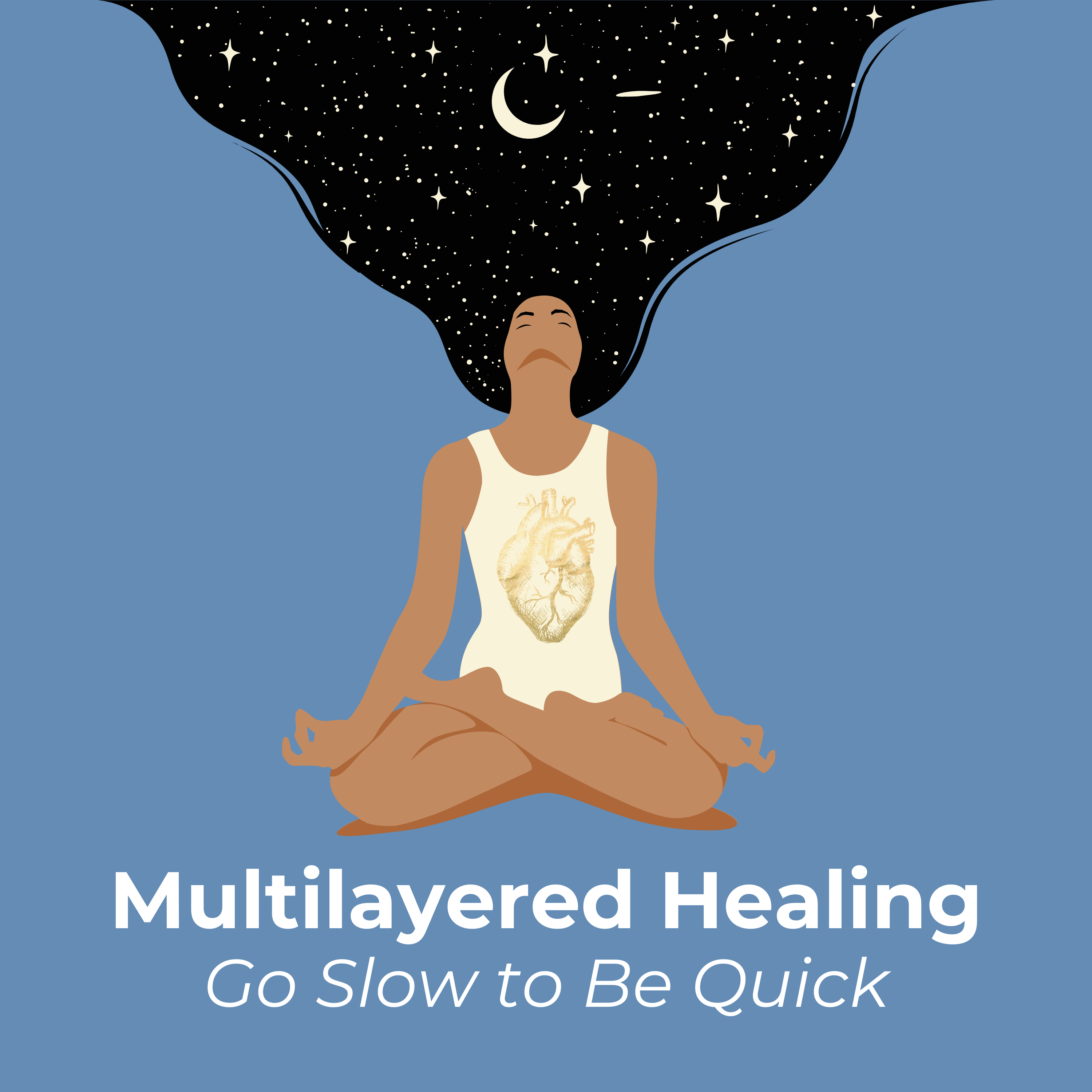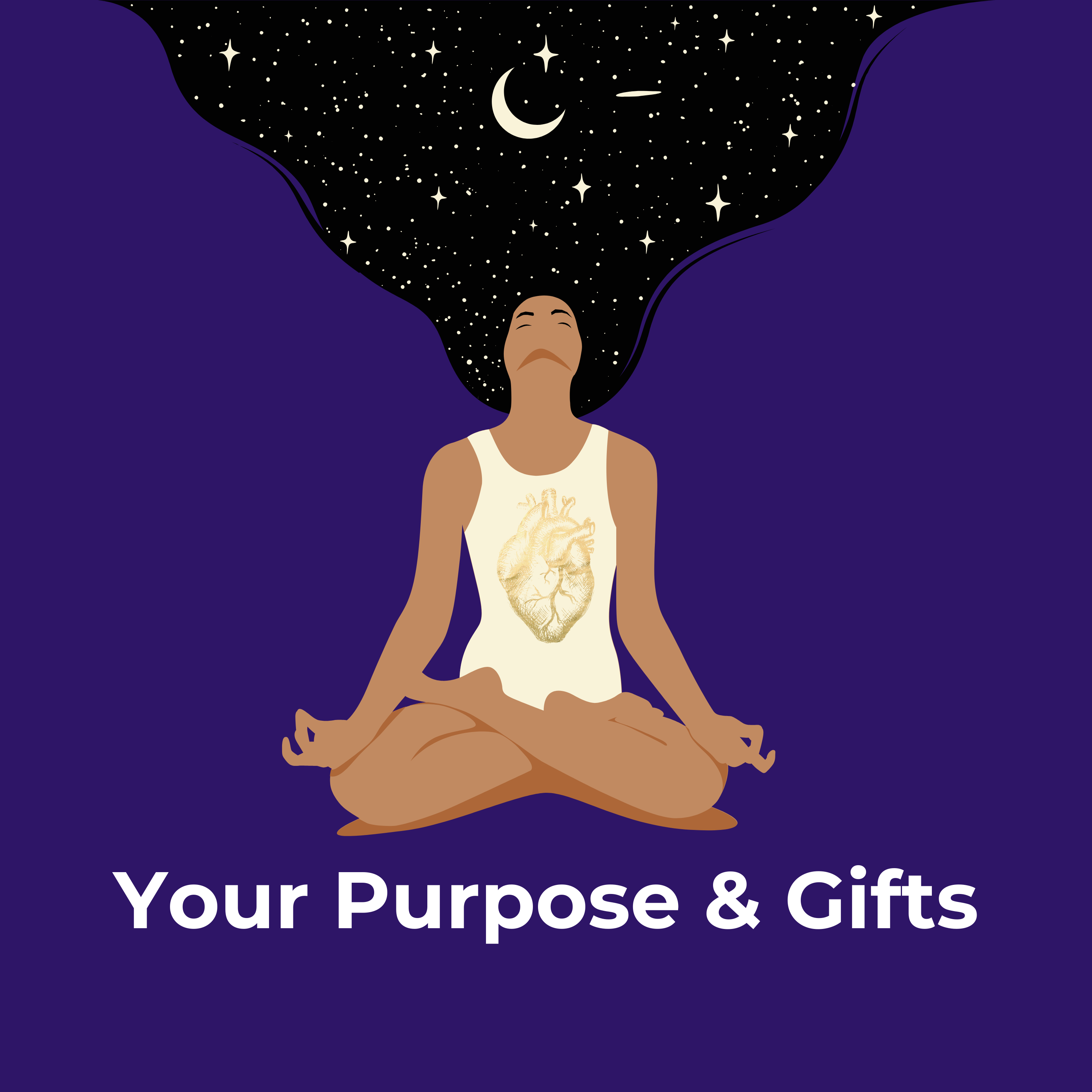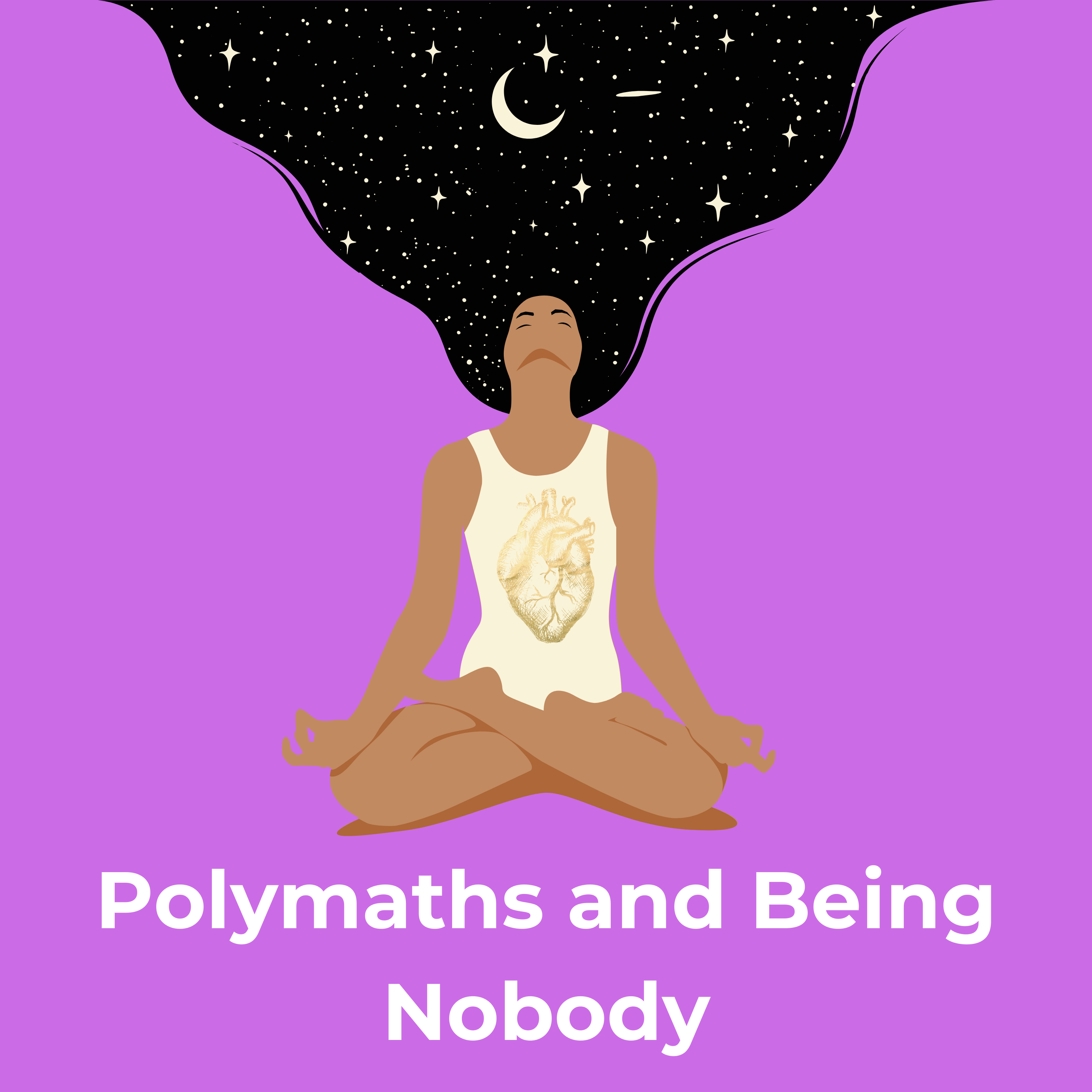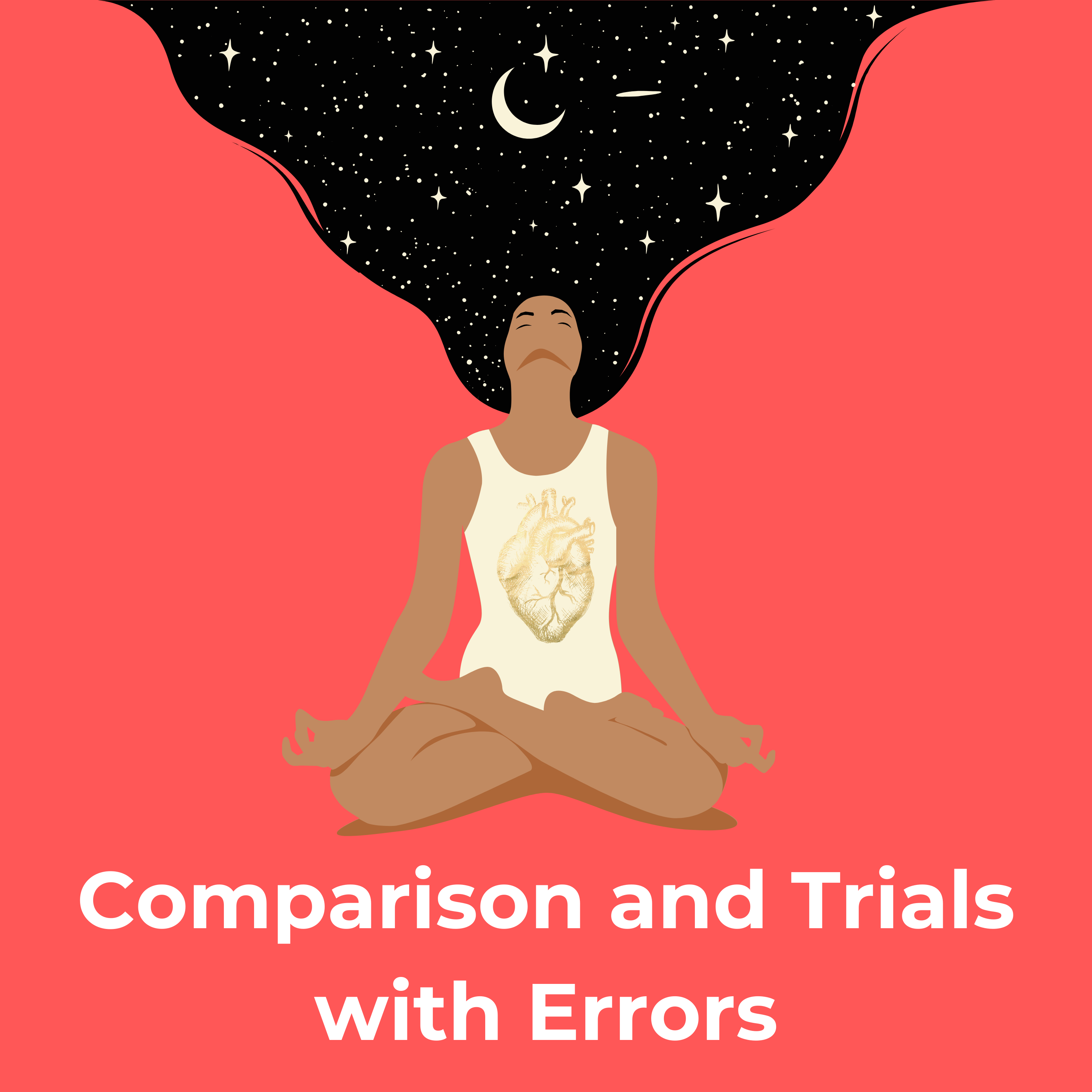Episode Transcript
[00:00:00] Speaker A: The world of healing can be treacherous, but suddenly spiritual aims to provide real, honest, practical, spiritual knowledge and wisdom for the true seekers among us.
The goal is to ignite the divine human within each listener, raising the collective consciousness for our planet. We will challenge your preconceptions, push your buttons, and encourage deep reflection. We're not here to adhere to the status quo of what the new age spiritual market wants you to buy into and believe. Consider this your antidote to the woo woo and a place of woo yu.
[00:00:55] Speaker B: I see a lot of people who are good at trying to heal other people and foregoing the self healing or not realizing they can heal themselves.
For those listeners out there who may find themselves being the healer to other people, and I'm going to say it, neglecting themselves, what can they do to mitigate that habit? I call it of fixing other people's problems or trying to heal other people and not worrying about themselves. Because selfishness isn't bad, right?
[00:01:36] Speaker C: No. Selfishness, selfishness, self preservation, self love is not bad. Those things are not bad. It's when they become your only focus. When you become your only focus and it isn't balanced, then that is where the shadow side comes in. You know, I could do a whole week, you and I could probably do a whole podcast on people who ignore their own healing in order to, quote, unquote, fix other people.
Where I could say at the beginning of working, I would say as a healer, I would overly index and overly invest my identity and my value in how other people were doing.
I did a good job. This person is having really good things happen in their life. They've been working with me. That means I did a good job. That means I'm a good healer. That means I'm a good person. That means I'm enough. And that is a dangerous way of thinking, because again, you're farming out your value to other people and not internally finding value in yourself for being a human being, a divine human being, for being who you are.
And it's so tricky and it's so hard. And I wish I had answers. I have more questions than answers, honestly, especially on this topic of how to help people move to a place where they're not overly identifying themselves, their value, and their worth by external measures. And people.
I think the first thing that can be done that's really helpful is to identify it, to see that you're doing it. Because if you were raised like I was, to always look externally, how can I help? How can I serve? How can I make things better for others who cares about me because greek culture is very collectivistic, or at least how my family expressed. Greek culture was very collectivistic, and the individual doesn't matter. It's always about the family and what you can do for your family, because you are a complete reflection of your family, especially your parents. So you better not do anything wrong, and you better be the best of the best of the best at everything you do, which is a lot of pressure.
I think identifying that you have that patterning is the first step in helping you to rewrite that patterning and that coding. You have that software you had downloaded a really long time ago. Just identifying it first and then starting to break it down little by little. Again, curiosity. Curiosity helps to alleviate fear. You can't be curious and fearful at the same time. It just doesn't work, I would say, to get curious about, okay, so I have this belief system.
Where did it come from? Let me trace it back. Let me map it back to, you know, patient zero. Finding patient zero in this and then seeing, is it true? Is it really true? Now, for me to believe that I'm only valuable when I'm in service to others, if I'm not in service to others, then I'm not valuable. Is that something you want to live with for the rest of your life? Is that a belief you want to hold?
[00:05:10] Speaker B: And I think a lot of people are apprehensive to even ask that question of themselves.
And it took me a while, and I see people who are not doing this realize you can't lie to yourself.
I don't think.
I think you can lie to yourself in the guise of protecting yourself.
So I guess in that sense, you can. But at the end of the day, you know you're lying to yourself.
And when we talk about bringing personality traits or things we've learned, I know for me, I'm a problem solutions type of person. Here's a problem. What do we got to do to fix it? Or in the case of physical health, there are things that are measurable. Okay, I'm getting stronger. These clothes fit better.
These are physical things. These are tangible things.
Even working out, you can get a spreadsheet. Put it out. Okay, I'm doing this many reps and doing this. I'm doing this for those people who are so inclined.
When we get into the spiritual realm, and I definitely went through this, I was trying to put that way of measuring things to see where my progress was onto the spiritual journey. And I definitely had some back steps and then went forward, went back. But for people out there who are or finding themselves falling short because they're trying to measure this healing that way, what can you speak to to maybe help them not do that? And why does that not work?
[00:07:07] Speaker C: I remember I was training for to be a meditation facilitator, and the teacher asked us to create a plan for our self care. And I love excel. I love spreadsheets. I really do. They just organize my brain in such a pleasing way to me. They're very satisfying. And so, in my infinite wisdom, I decided I was going to create a self care spreadsheet. And I was super proud of it because it looked really cool, and it seemed like it was very robust. And then I sent it over to my teacher, and my teacher, I was, like, waiting for the gold star again. Programming is really hard to break sometimes, so I'm waiting for my teacher to say, oh, my gosh, this looks amazing. And she said, are you open to some feedback about your self care spreadsheet? I'm like, yes, I am. Absolutely.
She said, this looks like torture.
This looks like punishment. You have accounted for every moment of your day in this way. That feels very punishing.
Self care is not about how much stuff you can cram into your day or how much healing you can get in. It's not about just color coding everything and placing everything in this neat little box that you could check off.
You leave no room for joy. You leave no room for mystery and magic in the spreadsheet.
And if only things were linear in healing, they're not linear.
And in self care, I would say it's not linear either.
In spirituality, it definitely isn't linear, because time is our construct, and it's created through expectation and many other things. But I had to release myself from that type of thinking with the spreadsheet, because I think it was just how I was trained within working within corporate America, to be honest, and being in education, being in educational institutions for so long where things are very linear, after second grade is third grade, you know, once you're a manager, then you're a director. So there's these linear paths that are created that we're trained to subscribe to and to follow. And so we think that school and work are going to, you can just copy and paste that type of thinking to healing, and it's just not so.
And it creates these false expectations which only lead to disappointment, because, wait, if I did ten Reiki sessions, then I should be at this level of healing, and I'm not now. So I must have did it. I must have done this wrong, or the healer, the Reiki healer wasn't good enough because I should be x far along at this point in my journey with all of these sessions. So releasing yourself from the linear and realizing it's an artifact of how education and how work in the western world is presented to us.
[00:10:43] Speaker B: So carrying on from that fact, how do we know when we're done healing? How do you know? Okay, I've done all this stuff. I'm done now. I'm fixed, and now I can move on, because now I'm perfect. I'm fixed. The healing's over. You know, I had. I broke my leg. I put a cast on it. The cast has come off, and the leg's healed now, so we're done. Right?
[00:11:10] Speaker C: Right? Yeah. Yeah, sure. You can totally go run the Iron man with that newly healed broken leg. Right? You're good. You don't. You're. You're fine. You're healed, you're fixed. I think it goes back to, you're not broken. So why would the solution being you fixed? But I think you can get to a place within different levels of trauma and different places where you need healing, where you can get a lot of relief and are not emotionally activated by certain things.
For instance, I was in a long term relationship. It was very traumatic. I broke up with that person, and I was able to find healing, and it took me five years, but I knew that I was in a good place where it was a scar and not a wound. When I wouldn't really think about this person, if this person came into my awareness or something happened that reminded me of him, I didn't have the emotional activation that I used to, and I'd be like, okay. And then I would just move on my day, move about my day. So I think people can get to a place where they're not emotionally activated by problems that they've had or issues that they've had in the past or relationships. But I don't think that can happen for every single thing in your life.
I don't think there's a done.
Healing is so multifaceted and multi layered, and there's always things to work on.
But I don't think that we just get to a place when we're 100% ascendant masters and we're these enlightened beings that our feet barely touch the ground, and we're totally done with healing, and that's a wrap. Like, everyone could go home now. I don't think that's possible.
[00:13:15] Speaker B: So you talked about a scar versus a wound. Can you differentiate those two? I love that we were talking about that.
[00:13:24] Speaker C: Yeah. So one of my teachers was saying, you know, you're ready to teach about a certain topic when you're teaching from the scar and not the wound. A wound is something that is open and that hasn't healed.
A scar is something that is healed yet has the reminder of what had happened there before.
People teach what they want to learn in many situations, but if you're coming from a place where there is an active wound that's open, then maybe you need some more time to actually have that scar form so that you can come from a place of more containment versus a place of disorganization and openness and vulnerability where you may not have fully formed some good thoughts and good teachings around. So that's why I said to work from the scar and not the wound.
[00:14:29] Speaker B: How do we recognize a wound?
[00:14:32] Speaker C: Yeah, I think it goes back to your emotional activity around it. If you're seeing yourself get really, really anxious, really, really in grief, angry about something and you can't find your way out of it, or it seems like you're being consumed by it, that most likely is an open wound.
You can have a scar and still have anger around something, but it doesn't consume you, and you can identify it. And there's almost again this separation of, okay, I'm noticing that I'm angry about this. Okay, and then you investigate, is this residual anger? Is it anger about something else? Is this triggering something else? It's really like the investigation of it, and you're like, oh, okay, so this is kind of a halo or a residual impact of this scar, but I'm nothing emotionally uncontained about it, and it's not going to impact how I move forward.
I'm not being overtaken by it. It's not like a wave that's crashing on you and then pulling you out to sea, but when it's a wound, you're in the ocean and the riptides are carrying you away and you can't get back to shore, and you're panicking.
So healing is very layered and multidimensional. And, you know, just like your skin, if you think about it, our skin has many, many layers to it. And what we see on the external part of our body, in our skin is our largest organ. So what we see on the external part of our skin is actually dead. The live layers of skin that are connected to blood vessels and all kinds of things are far deeper. So it's the same situation with healing what we may see on the outside, which is the expression of a certain unhealed trauma or wound, it may be old, and we're not looking at the root, and the root is far deeper. And so in authentic relating, they talk about these kind of cardinal wounds that people have and how these wounds are the root. And then so many different behaviors are, you know, come out from those rooted, that root. All these little tendrils of behaviors come out almost like an octopus. Like the body of the octopus is the root. And then all of the little tentacles and tendrils that are coming off of the octopus are these different types of behaviors. So if you have the wound of abandonment, then how would one behave? Well, maybe they'll reject people before they get rejected because they don't want to be abandoned, so they have to do the abandoning first. Or maybe they isolate themselves because they just don't even want to get into a relationship with someone because, again, they don't want to be abandoned. So they do the.
The behavior of isolating. So, with healing, there's the root of the wound, and then there's all these other behaviors that come out from it. And there are spiritual components to these roots, past life or multi other dimensions where these specific patterns have roots in which can get complicated.
And I don't know if in this podcast we can talk about the multidimensionality of each human being. That might be a little too much for this episode, but we could definitely talk about it in another episode.
But there are these roots of different spiritual wounds, and there's layers.
Working through the layers, one by one, diligently, with patience. Giving yourself patience and giving yourself grace is how you get through things quickly.
You have to get through things slow. You have to be slow to be quick. I'll never forget my friend who, she's a yogi, and she's just an amazing human being. She was talking about Napoleon and how Napoleon's, you know, y'all seen Napoleon with all of his buttons on his. On his shirt, and there's like just 20 buttons or more on his shirt in the portraits that he's depicted. And he had people who would dress him because his outfit was so complicated. And one of his dressers came to him one day and was going to dress him, and he said, look, I'm in a hurry, so I need you to go slow.
Because if the dresser were to go quickly and tried to catch all the buttons, what if they missed a button or dressed him incorrectly? Then that it would have to start all over again. Pull the whole thing, apartheid. And then it would take Napoleon more time to get out of the house. So in order to go quickly, you need to do things slowly.
And it's the same thing with going through those layers, those layers of healing that you have.
Trying to speed through them is going to have you repeat certain lessons, which I've done.
It's happened. And I think I'm, I still do it. I still do it to some effect where I'm like, oh, yes, I got this lesson. I went through the layers, I'm good.
And then a year later, here comes the lesson that I didn't learn the first time, and it's much angrier and it's much more intense. And then I realized, oh, it's that lesson from a year ago that I thought I spent, you know, I thought I was being smart and I sped through, okay, now im just going to have to repeat this and do it right this time now.
[00:20:35] Speaker B: So I know ive gone through that to your last point about things coming back.
And initially you think its done, its over with and youre like, okay, I can move on. And then when it comes back, theres a sense of disappointment. Failure, however, manifests for people.
But I quickly realized, but it's never a one and done. Like it's over. Let me move on. And like you mentioned, because of the layers and because of the time it took for this thing to actually become what it was, it's probably proportionally going to take the same amount of time, maybe even longer to undo the thing.
And for people who are getting the reruns, maybe we can call it the rerun where I thought it was done and then it came back. Why am I seeing this again? I thought I handled this with a vengeance.
Yeah, it actually does. And I mentioned this to people, too. It's especially with emotions, with the negative ones. It's funny how a negative one comes up and we push it down and it doesnt go away. It grows. But with the positive ones, itll just come through, do its thing, and then dissipate because theyre both energy.
What can you say to people who are seeing those things coming back and how to manage that when those feelings of beating themselves up because this thing came back pop up?
[00:22:19] Speaker C: I'm gonna give some really unpopular, I guess I could use the word advice first. I would say when a thing comes up that is really painful, find a way to sit in the discomfort of it, and by finding a way to sit in that discomfort, it actually releases the pain. I know that sounds really strange. My friends make these boards that are made of wood and have these little copper. They look like nails, but they're. They're not pointy, pointy like nails are. And you stand on them and they hit all of the acupuncture and acupressure points in your feet. They also have them for your back. You probably have seen something like this, where it's like a foam little pad, and then it has these plastic spikes that you can lay on for your back, for back pain. And I was speaking to my friend Dimitri, who makes these, and I was asking him, how do they work? Because they're painful. It's painful to step on these little nails. He's like, well, they give your mind something else to do when you can't settle in and not. You can't settle into meditation, because if you're in pain, you'll be in pain. If you're in pain, you have to just stand there. You either stand there and sit in the pain or you get off the board. There's no choice. So if you decide you're going to stand on the board and settle into the pain, eventually, after two or three minutes, you don't have pain anymore, and you're able, your mind is able to shift into a single point of focus in meditation. It quiets your mind down because you dealt with that pain.
Your mind was preoccupied with the pain, and then you were able to settle, and then you get into this more flow state, this more open space, and your mind disregards the pain after a certain point.
And it's kind of the same thing with healing.
If you're able to sit in the discomfort as much as you can tolerate it, like, say, if you have. Say, if someone says something really nasty to you and it triggers this angry and sad response and you start to go down this tunnel. Of.
Of course, they're right. I'm an awful person. And it's because my dad told me I was an awful, awful person. And here's all the evidence. Let me show you all the evidence of all the bad things I've ever done in my entire life since I was two years old.
So you can go down that spiral, or you can take that singular event and just sit in what it is in that moment. Okay? This person was really critical of me. I'm just going to sit here and be with it. I'm just going to sit here and be in presence with that awful thing.
And I'm just going to be the observer and notice what that criticism from another person outside of me is bringing up. And I'm just going to sit here and I'm just going to notice it. Almost like you're watching tv. Okay, how is this playing out? Let me see. And again, it takes a level of separation, a level of acceptance and I presence to be able and appetite like some people, it's just they get too activated and they can't do this. And it's fine. You can build up to this. This is something that you can build up to. But just to see and witness being the witness state of what's going on. Like what's going on for me right now. Hmm. How does this feel in my body? Oh. When Sean said that I'm an awful person, I felt it in my heart or I felt it in my stomach and it feels fiery. Okay. I wonder what that's about.
Oh, he reminded me of when my brother said that about me. Because I went into his room and I was searching in his room for something and he felt violated with privacy.
Okay. Again, it's that witness base. Being able to sit in presence with what comes up for you, identifying it and making friends with it.



